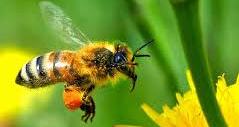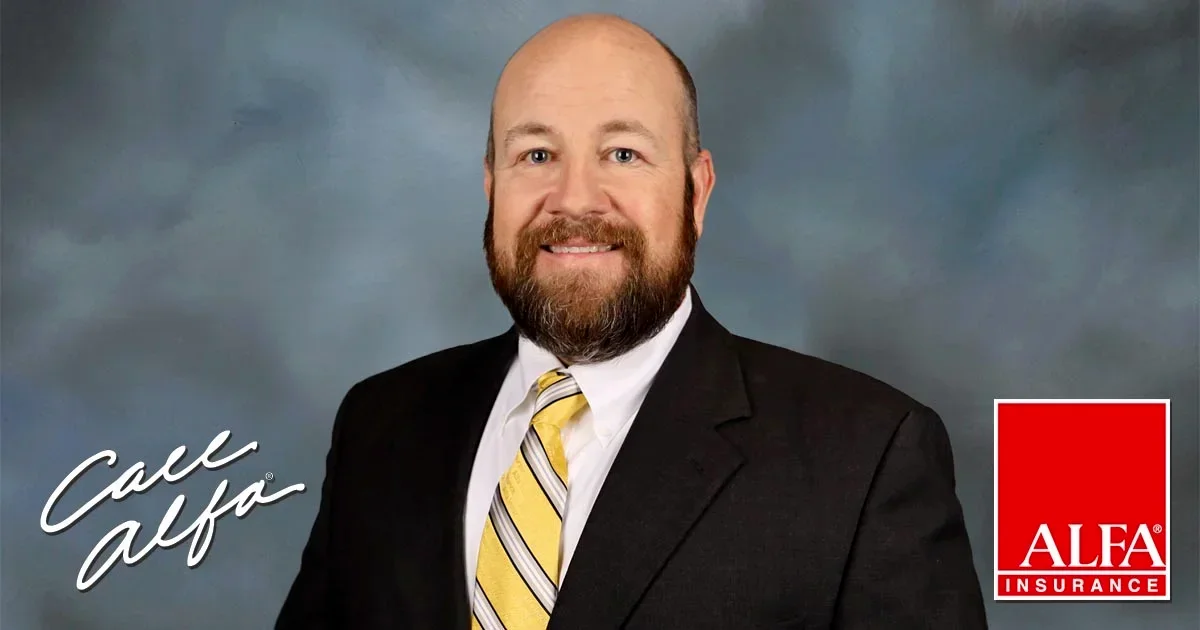James L. Cummins

Bees by James L. Cummins
We have heard a lot recently about the importance of bees and how detrimental it would be to our lives if these fascinating insects died off. While there are more than 20,000 species of insects that fall under the “bee” category, we will take a generalized view of this important creature. Adult bees range in size from .08 to 1.6 inches.
They are closely related to certain types of wasps, with the principal difference being that a large portion of bees provide their young with pollen and sometimes honey, whereas wasps provide their young with animal foods such as insects and spiders. Another difference is that wasps are covered with unbranched hairs, whereas bees have a few branched or feathered hairs to which pollen often clings.

JOHN L SULLIVAN, YOUR ALFA AGENT: The best time to get life insurance is now. Plan ahead. Term Life Insurance: An affordable policy that offers protection for a set period of time (Coverage Length, 10-30 Years, Best for Ages 0-70). Whole Life Insurance: A life-long policy that builds cash value allowing you to borrow money against it if needed (Coverage Length, Your lifetime, Best for Ages 0-80). Protect yourself, your spouse and family. In case of death, your life insurance benefits can help pay for your home mortgage, college tuition, childcare costs, existing debt, monthly bills or final expenses. 422 Highway 61N, Suite 3, Natchez, 601-445-8868.
https://www.alfainsurance.com/agents/john-l-sullivan JSullivan2@alfains.com
Bees are entirely dependent on flowers for food. Strangely, this is also very beneficial to the flower. As bees go from flower to flower gathering pollen, a small amount is rubbed off and deposited onto the flowers they visit. This results in the cross-pollination of plants which helps them to flourish. The practical value of bees as pollinators far outweighs the value of their honey and wax production. Interestingly, male bees are usually short-lived and never collect pollen. They also share no responsibility in providing for the young. Female bees do all the work of nest making, pollen collection, and providing for the young.
It is also fascinating to realize that while most bees are polylactic, meaning they gather pollen from a diverse collection of flowers, there are some bees that collect pollen only from flowers of certain species, and still others that collect from flowers of certain colors. Oligolectic bees gather pollen from only a few related kinds of flowers. In these cases, the mouth parts of the bees, along with the pollen collecting and carrying parts, seem to be adapted to different flowers. Some bees are solitary bees meaning they do not live in colonies. Bees that do live in colonies, such as the bumblebee and honeybee, are known as social bees.
One should note that the so-called killer bee is a hybrid between an African subspecies and a subspecies of European honeybee. The Africanized honeybee resulted from the accidental release of African honeybees in Brazil in 1957. These bees then crossbred with local European honeybees. These notorious bees are not more venomous than the European species, they simply react differently. Any perceived threats to the colony are met with a quick response of many bees that will pursue their attackers for longer periods of time and will go farther distances to satisfy their anger.
It also takes these bees a longer time to retreat from their mission. Because of these characteristics, “killer bees” have been considered responsible for hundreds of deaths. In any case, bees do serve a greater purpose than being a nuisance. They are vital to our existence.
James L. Cummins is executive director of Wildlife Mississippi.
-----
Contact Us
News for Southwest Mississippi and East Central Louisiana, including Adams, Jefferson, Franklin and Wilkinson counties and Concordia and Catahoula parishes.
Offices:
15044 Blue Marlin Terrace, Bonita Springs. FL 34135
601-431-2990
missloumagazine@gmail.com
Peter Rinaldi, publisher
Clarisse Washington, editor emerita